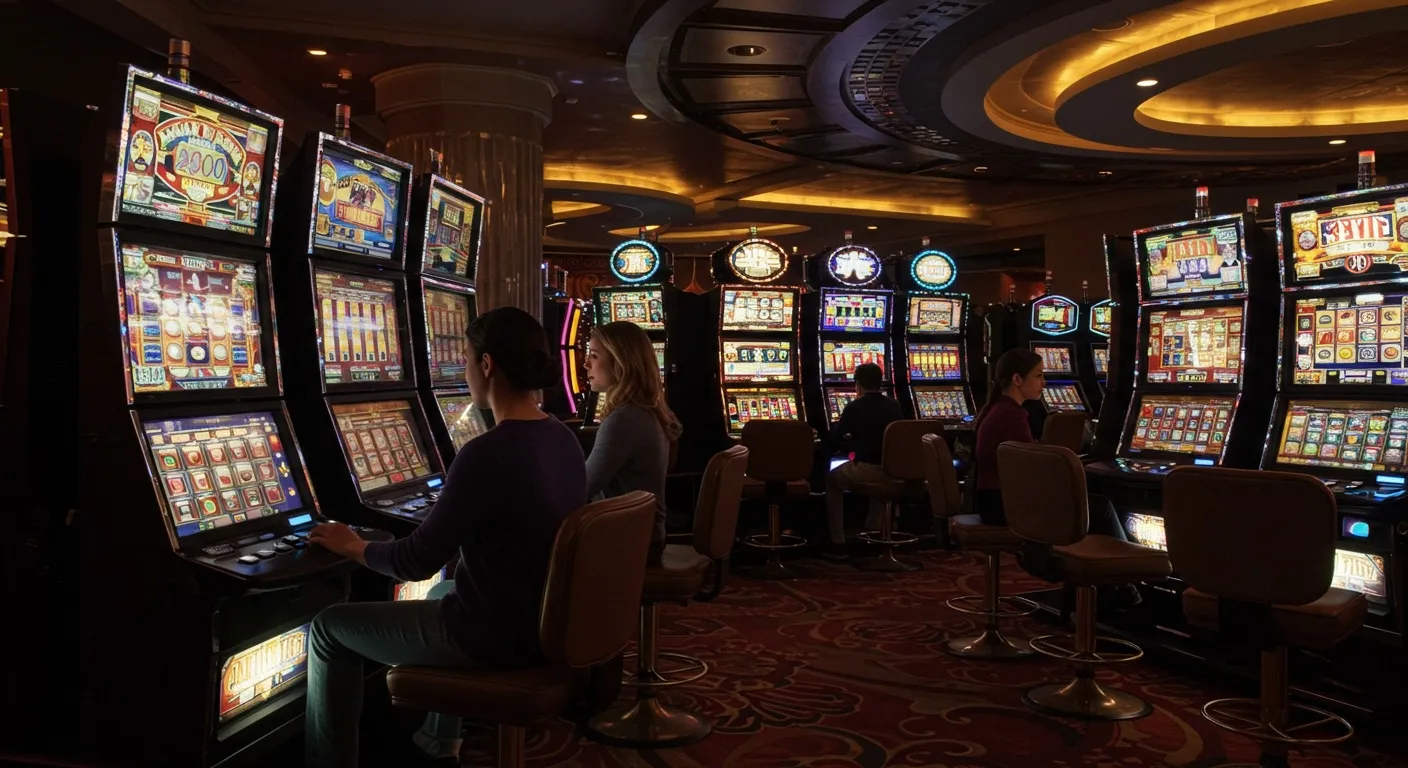Walk into any casino—online or land-based—and you’ll immediately feel something special in the air. It’s not just the lights, sounds, or the anticipation of a win; it’s a carefully engineered experience designed to keep you playing longer than you planned. From subtle design choices to reward patterns and sensory stimulation, casinos rely on behavioral psychology more than luck to keep players engaged. Understanding these techniques doesn’t just make you a smarter player—it gives you the power to control your experience.
The Power of the Environment
Casinos are masters at manipulating environment and atmosphere to keep players immersed. Every visual and auditory element—from lighting to sound—is part of a strategic design. Traditional casinos avoid windows and clocks to make players lose track of time, creating a timeless zone where you can play endlessly without realizing how long you’ve been there.
Online casinos have adapted this concept digitally. Instead of physical surroundings, they use bright interfaces, flashing animations, and celebratory sounds to produce the same effect. Every “win,” even small ones, is followed by lights and fanfare, tricking the brain into feeling successful, even when the payout doesn’t exceed the bet. Over time, this visual and emotional stimulation builds what psychologists call “positive reinforcement loops.” The player associates casino activity with excitement and reward, encouraging continuous play.
This is where understanding player psychology becomes crucial—casinos know that if the environment feels safe, comfortable, and exciting, players will stay longer and spend more.
The Role of Near Misses and Variable Rewards
Have you ever been one symbol away from hitting a jackpot on a slot machine? That experience—called a “near miss”—is one of the most powerful psychological tools casinos use. Research shows that near misses trigger the same dopamine response as actual wins, giving players a rush that keeps them chasing the next spin.
Online platforms have perfected this model through random number generators and variable reward schedules. The key is unpredictability. When you don’t know when the next reward will come, your brain remains hooked, anticipating a possible win every time you play. It’s the same mechanism behind social media notifications and video game achievements—the uncertain reward triggers excitement and compulsion.
Casinos combine these mechanics with bonuses, loyalty points, and timed offers. You might get a free spin after losing several rounds, just enough to make you feel like you’re still “in the game.” This illusion of control—believing you’re just one play away from winning—is the foundation of most gambling psychology.
Influence of Online Design and Player Freedom
Online gambling has changed the landscape of behavioral design. In digital casinos, the focus is on user interface and engagement flow. Each element—button placement, color choice, and even the rhythm of animations—is tuned to encourage continued interaction. Instant deposit options, one-click replays, and quick bet reloads make it easy to play without pausing to reflect.
Interestingly, many of the best non GamStop casinos utilize these same principles but position themselves as more flexible alternatives for players seeking freedom outside the UK’s strict self-exclusion system. These sites often promote smoother gameplay, fewer restrictions, and quicker access to bonuses. While that may sound attractive, it’s important to remember that the same psychological hooks still apply. The instant access and rewarding design can heighten impulsivity, so self-awareness is essential.
The psychology of interface design in online casinos revolves around reducing friction. When every step—from depositing funds to claiming bonuses—is seamless, players are less likely to stop and think about their spending. It’s a subtle yet effective tactic that keeps engagement continuous.
Music, Sound, and Emotion
Sound plays an underrated role in gambling psychology. The satisfying “click” of spinning reels, the ringing of coins, and the triumphant music of a bonus round are all engineered for emotional response. Each sound is designed to release dopamine—a neurotransmitter associated with pleasure and motivation.
Even background music in casinos is carefully chosen. Upbeat tempos can subtly raise heart rates, increasing excitement and risk-taking, while calm tones help maintain focus. Online casinos replicate these auditory cues digitally, synchronizing music with on-screen wins to heighten immersion.
Interestingly, the sound design extends beyond winning moments. Even losing spins often include subtle chimes or partial win sounds, tricking the brain into perceiving success. It’s not about the outcome—it’s about maintaining a rewarding emotional rhythm that blurs the line between winning and losing.
Reward Systems and Loyalty Programs
Casinos understand the importance of consistent engagement. Loyalty programs and VIP tiers aren’t just customer service tools; they’re psychological motivators. By offering “status rewards” like exclusive bonuses or higher withdrawal limits, casinos appeal to a player’s desire for recognition and achievement.
The progression-based system creates what behavioral economists call “sunk cost fallacy”—players feel compelled to keep playing because they’ve already invested time or money to reach their current level. Online casinos amplify this with progress bars, badges, and rank titles, giving players visible goals that encourage continued participation.
Even seemingly generous welcome bonuses are structured to maintain engagement. They often include wagering requirements, ensuring that players keep betting long enough for the casino to regain its investment through playtime. It’s a sophisticated balance of incentive and retention.
The Illusion of Control and Skill
Casinos use another clever psychological principle: the illusion of control. This happens when players believe their decisions directly affect the outcome, even in games of pure chance. Slot machines, for example, let players stop the reels manually, giving a false sense of influence. In reality, the outcome is predetermined by algorithms before the spin even starts.
Table games like blackjack or poker blend real strategy with chance, reinforcing the idea that skill determines success. While skill does play a role, randomness and house advantage remain constants. By making players feel capable of influencing results, casinos increase engagement and emotional investment.
Online casinos expand on this illusion through features like “auto play” customization and “pick your bonus” choices, which make players feel in control, even though the overall probabilities remain fixed. The sense of agency is powerful—it keeps the experience personal and immersive.
Color Psychology and Visual Design
Colors in casinos aren’t chosen randomly. Every hue serves a psychological function. Red evokes excitement and urgency, blue promotes calm focus, and gold symbolizes wealth and reward. Slot machines, websites, and mobile apps all use these color patterns to drive emotional behavior.
In online casinos, color psychology blends with motion. Animated icons, glowing buttons, and countdown timers are used to stimulate decision-making and encourage faster betting. This high-energy environment creates what psychologists call “flow state”—a mental zone where players lose track of time and external distractions, remaining completely absorbed in the game.
Casinos aim to keep players in this flow as long as possible because it leads to prolonged play sessions and reduced financial awareness.
Responsible Gaming and Awareness
While the psychology behind casinos is fascinating, it’s also a reminder of how important responsible gaming practices are. Understanding the tactics used to capture your attention can help you play more consciously. Setting time and spending limits, taking breaks, and recognizing emotional triggers are essential strategies for staying in control.
Players should also pay attention to how bonus offers and “loss recovery” features are presented. These tools are designed to extend gameplay rather than genuinely benefit players. Awareness is your best defense—when you know how casinos use psychology, you can separate entertainment from manipulation.
Online operators, including the best non GamStop casinos, often encourage self-responsibility. Some even provide voluntary limit-setting tools and time reminders. Still, the responsibility ultimately lies with the player to recognize when excitement crosses into compulsion.
Final Thoughts: The Mind Behind the Game
Casinos are not just entertainment spaces—they’re psychological ecosystems crafted to engage, reward, and retain players. Every sound, color, and animation serves a purpose. The goal isn’t necessarily to make you lose, but to keep you playing, because the longer you play, the more the odds shift toward the house.
By understanding these psychological principles, you can approach gambling with clarity. It’s okay to enjoy the thrill, but always with awareness and self-control. The more you recognize these design strategies, the easier it becomes to make informed choices and enjoy the experience on your terms.










